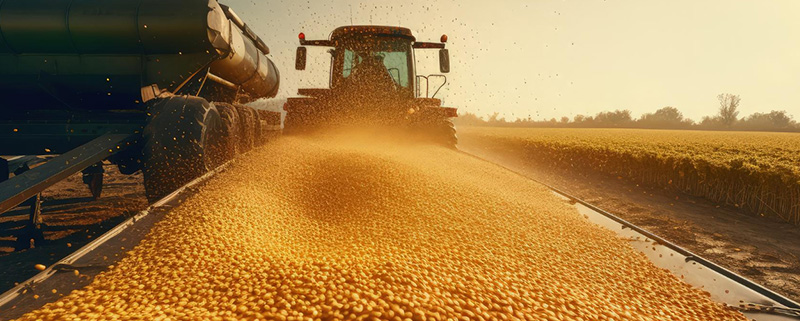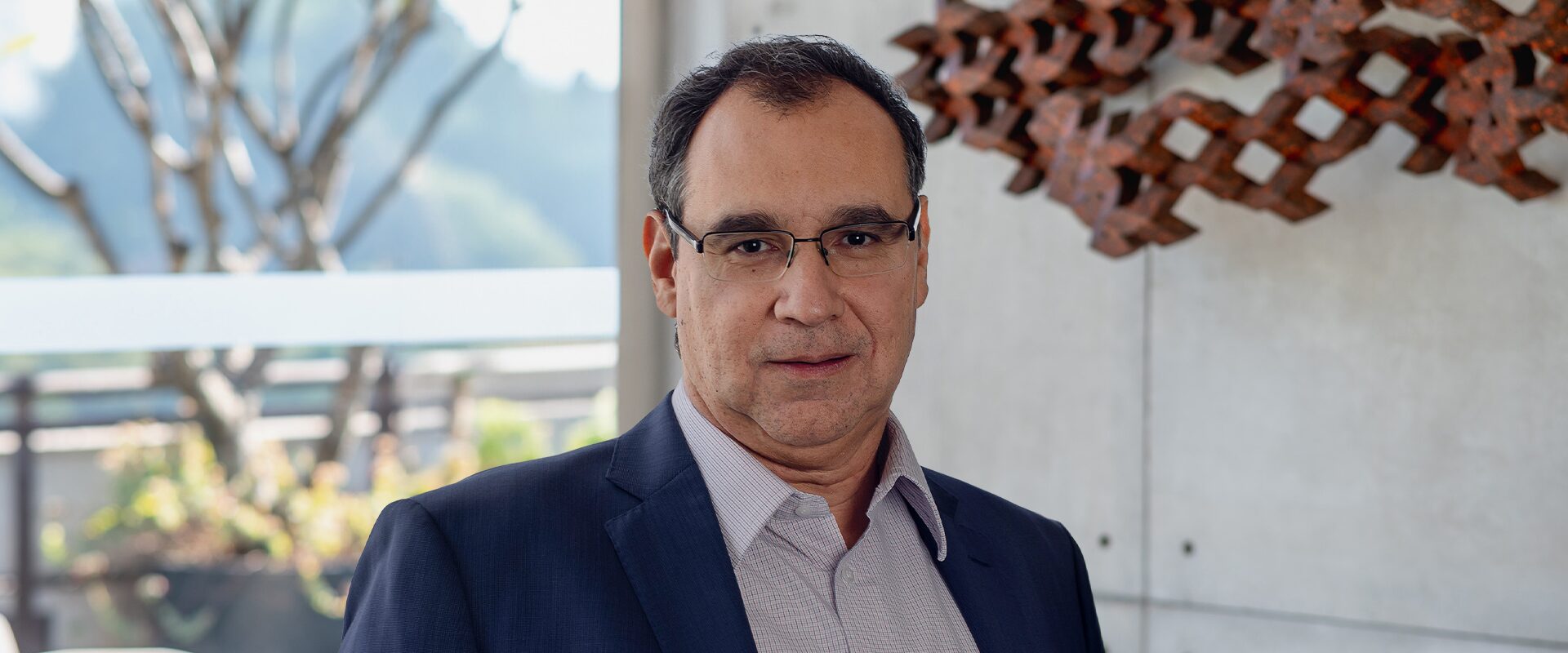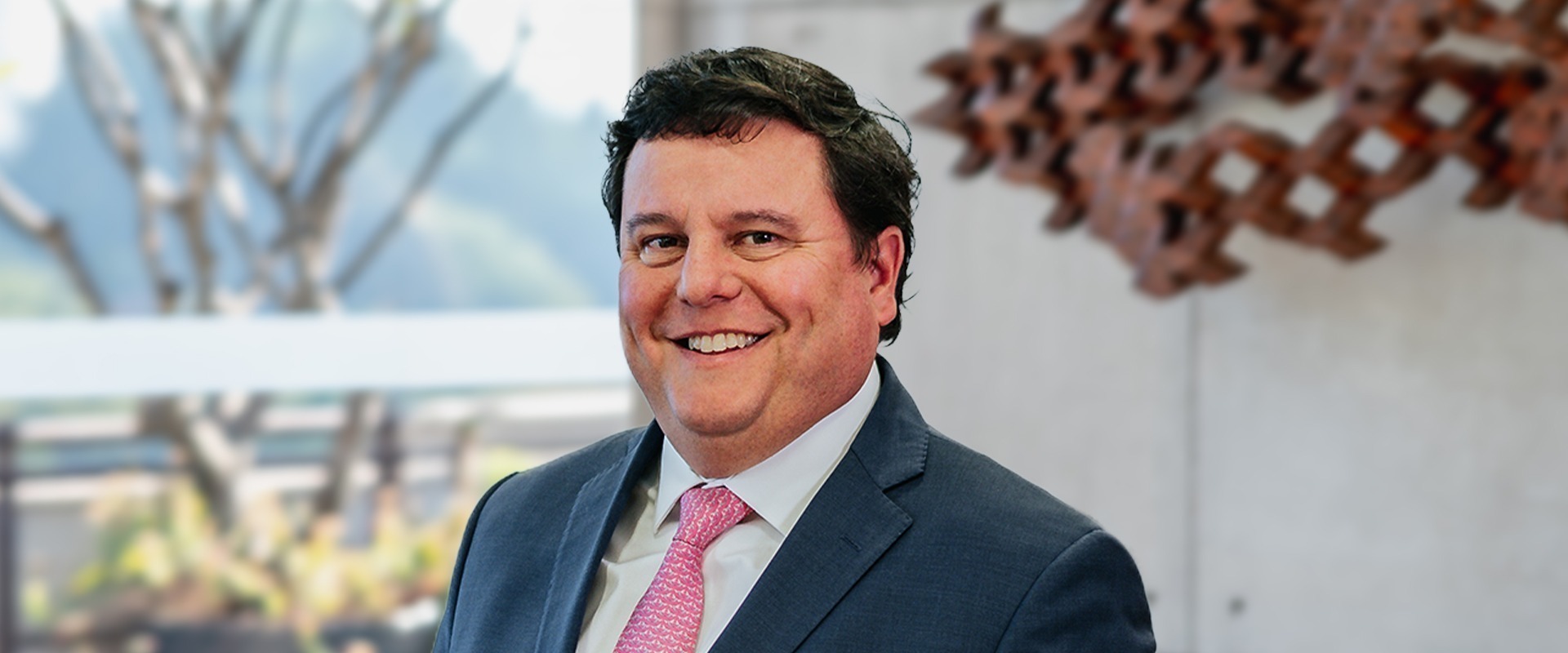
The Agribusiness Newsletter brings information and news about the main regulations and legal texts relating to the regulation of agribusiness in Brazil. This initiative seeks to cover the agribusiness industry on its transactional, litigation, tax and regulatory levels, and is an invitation for all of those working in this market to both access important news and comments on vital topics from the sector.
This material is for informative purposes only, and should not be used for decision-making. Specific legal advice can be provided by our legal team.
NEWS

FIAGRO offerings increase in January and reach BRL 1 billion
In January 2025, Investment Funds in Agroindustrial Productive Chains (“FIAGRO”) offerings totaled BRL 1 billion, representing an increase of 159.1% compared to the monthly average of BRL 403.3 million recorded in 2024. Offerings have reached this figure for the second month in a row, since December 2024 recorded BRL 1.3 billion, the best monthly performance since January 2023.
A survey by the Brazilian Financial and Capital Markets Association (“ANBIMA”) pointed out that there were seven FIAGRO offerings in January, five of which were Credit Rights Investment Funds (“FIAGRO-FIDC”), one Real Estate Investment Fund (“FIAGRO-FII”) and one Equity Investment Fund (“FIAGRO-FIP”). Considering underwriters, intermediaries and other participants in the offering, the percentage was 65.6% of total issuances, while institutional investors accounted for 29.2%, investment funds, 3%, and individuals, 2.3%.
Regarding net funding, FIAGRO recorded a positive result of BRL 278 million in January, marking the sixth consecutive month of net inflows. As a result, the category’s net assets reached BRL 42 billion by the end of the month, an increase of 20% compared to January 2024. Net inflows were mainly driven by FIAGRO-FII, accounting for BRL 486.8 million, while FIAGRO-FIP recorded a net inflow of BRL 3 million and FIAGRO-FIDC recorded a net outflow of BRL 211.8 million.
The net worth of FIAGRO-FII accounts for the largest share, with 45.7% of the total, followed by FIAGRO-FIP with 40.5% and FIAGRO-FIDC with 13.8%. Since October 2024, the number of funds has been accounted for by class, in accordance with the resolution of the Brazilian Securities and Exchange Commission (“CVM”), CVM Resolution No. 175, of December 23, 2022, reflecting the increasing diversification and maturity of this market.
Sérgio Cutolo, ANBIMA’s director, pointed out that the data on FIAGRO offerings in recent months shows the evolution of these products, both in terms of quantity and financial volume. Cutolo also pointed out that the BRL 1 billion turnover in January is good news, since the first month of the year is usually less favorable for launching offers.
The growth in FIAGRO offerings in January 2025 demonstrates the solidity and potential for expansion of this segment in the Brazilian capital market. The different types of FIAGRO and the growing participation of different classes of investors indicate a promising future for the financing of agroindustrial production chains.
For more information: FIAGRO offerings increase in January and reach BRL 1 billion
Over 80% of the goals in CVM’s Sustainable Finance Action Plan 2023-2024 have been fully achieved
The CVM has published the Report on the Implementation of the Sustainable Finance Action Plan for the 2023-2024 biennium, highlighting that 82.35% of the goals have been fully achieved. This document details the results obtained and analyzes the main challenges in implementing the initiatives, designed to stimulate the integration of sustainability practices in the capital market and encourage the adoption of environmental, social and governance (“ESG”) standards.
Among the achieved goals was CVM Resolution No. 193 of October 20, 2023, as amended, which allows the drafting and voluntary disclosure of financial information reports regarding sustainability based on the IFRS S1 and S2 international standards. This measure has placed Brazil in a leading position worldwide regarding this topic, and the CVM received the UN’s ISAR Honours 2024 award, which recognizes organizations that encourage sustainability reporting and the Sustainable Development Goals (“SDGs”).
Other highlights include the publication of a specific regulation for FIAGRO, the CVM Integrity Plan, CPC Guideline 10 on carbon credits and decarbonization (“CBIOs”), the regulation of Investment Funds for Recycling Projects (“ProRecicle”), and the training of CVM employees in sustainable finance. These initiatives represent significant progress in consolidating sustainability in Brazilian capital markets.
Nathalie Vidual, CVM’s Superintendent of Investor Guidance and Sustainable Finance, stated the report shows that CVM is on the right track to encourage ESG practices. Vidual also stressed the importance of continuing to implement the plan for 2025-2026, ensuring that the CVM remains at the forefront of sustainable finance.
The report also points out that three of the 17 proposed goals were partially met, representing 17.65% of the total. The CVM remains committed to overcoming the challenges identified and advancing the integration of sustainable practices in capital markets, seeking a green and digital future.
The Report on the Implementation of the Sustainable Finance Action Plan for the 2023-2024 biennium shows the CVM’s commitment to sustainability and the adoption of ESG standards. It highlights the results achieved and future challenges to consolidate more sustainable and transparent capital markets.
For more information: Over 80% of the goals in CVM’s Sustainable Finance Action Plan 2023-2024 have been fully achieved

TAX REGULATION
New IRPF reform bill provides for exemptions and progressive taxation
The Federal Government has submitted Bill (“PL”) No. 1,087/25 to the National Congress, which mainly aims to (i) increase the exemption range for Individual Income Tax (“IRPF”) to BRL 5,000; (ii) “minimum taxation of high income”, which consists of instituting a minimum effective rate of IRPF on annual income in excess of BRL 600,000; and (iii) tax at source on dividend payments in certain situations.
For more information: BILL No. 1087/25 – IRPF: Exemptions and progressive taxation
STJ reinforces right to presumed PIS/Cofins credit for products of animal origin
The Second Panel of the Supreme Court of Justice (“STJ”) unanimously reaffirmed, in a session held on March 18, 2025, that the percentage of the rate of the presumed credit for the Social Integration Program (“PIS”) and the Contribution for Social Security Financing (“Cofins”) established in Article 8 of Law No. 10,925/04 must be determined based on the nature of the goods produced/marketed by the agroindustry, and not based on the origin of the input used to obtain it, according to the decision of the First Panel of the STJ in Special Appeal (“AREsp”) No. 1,320,972/SP (rapporteur Benedito Gonçalves) and the consolidation of the Administrative Council of Tax Appeals (“CARF”) in Precedent No. 157. In this case, the Second Panel also recognized the retroactive application of the provision included by Law No. 12,825/13 due to its expressly interpretative nature (article 106, item I, of the National Tax Code (“CTN”)).
State of São Paulo renews ICMS exemption for the agricultural sector
The State Government of São Paulo, through Decree No. 69,388/25, extended the exemption from the Tax on Transactions involving the Circulation of Goods and the Provision of Interstate and Intermunicipal Transportation and Communication Services (“ICMS”) for transactions with purebred, crossbred or open-book cattle, sheep, pig and buffalo breeding stock, provided for in article 73, Annex I, of ICMS Regulations (“RICMS-SP”), until December 31, 2026.
NFS-e format under the Tax Reform
On February 28, 2025, the Executive Secretariat of the Electronic Service Invoice Management Committee (“SE/NFS-e”) published SE/CGNFS-e Technical Note No. 002/2025, which demonstrates the new clusters and optional fields for the NFS-e format in connection with the Tax on Goods and Services (“IBS”) and the Contribution on Goods and Services (“CBS”) levied on service transactions, in compliance with the changes provided for in Constitutional Amendment (“EC”) No. 132/2023.
The technical note aims to provide transparency to municipalities, service providers, Information Technology (“IT”) companies, and taxpayers about the new tax document standard, which is expected to enter into force in January 2026.
Exclusion of IBS and CBS from the ICMS, IPI and ISS calculation bases
Supplementary Bill (“PLP”) No. 16/25, proposed on February 06, 2025, aims to amend Supplementary Law (“LC”) No. 87/96 and LC No. 214/25. The proposal aims to exclude IBS and CBS from the calculation bases of ICMS, the Tax on Services (“ISS”) and the Tax on Industrialized Products (“IPI”).
In addition to seeking to eliminate possible litigation, the measure is justified by the fact that EC No. 132/23, sanctioned by the President of the Republic, does not specify ICMS, ISS, and IPI among the taxes that should not include IBS and CBS in their calculation bases.
Bill No. 16/25 is still being processed and is awaiting the appointment of a rapporteur by the Finance and Taxation Committee (“CFT”).
TJSP upholds ITCMD on disproportionate profit distribution due to lack of business purpose
The Fourth Chamber of Public Law of the São Paulo State Court of Justice (“TJSP”), in its ruling regarding Case No. 1089011-58.2023.8.26.0053, upheld the levying of the Tax on Causa Mortis Transmission and Donation of Any Property or Rights (“ITCMD”) on the disproportionate distribution of profits due to the lack of a business purpose in the transaction.
In this particular case, the Court held that the autonomous will of the parties and the mere contractual provision were not enough to support the disproportionate distribution of dividends and that the transaction must be justified commercially. Thus, the distribution in question would be a donation disguised as a dividend distribution within the scope of ITCMD.
Although this particular case involves specific factual premises, the ruling is an important precedent to be considered when defining dividend distribution policies. For family structures that carry out disproportionate distributions, it is advisable to review their practices and assess possible tax risks, always considering the particularities of each specific situation.
FINANCIAL REGULATION
CVM’s Technical Area advises on updates to FIAGRO registration
On February 27, 2025, the CVM’s Securitization and Agribusiness Superintendence (“SSE”) published CVM/SSE Circular Letter 1/2025.
The document informs the market that, as of March 07, 2025, the SGF (automatic fund registration) and Fundos.Net systems will be prepared to receive registrations and information from FIAGRO. The new procedures result from the new regulations and the information system dynamics established by Normative Annex VI of CVM Resolution No. 175, of December 23, 2022.
Within the scope of the Circular Letter, the SSE also clarifies the procedures involved in adapting the stock of FIAGRO funds to the new regulation and requests administrators to submit the names, National Registry of Legal Entities (“CNPJ”) and transition dates of FIAGRO funds existing prior to the entry into force of Normative Annex VI to CVM Resolution No. 175 to the Securitization and Agribusiness Management 3, whose e-mail address is “gsec-3@cvm.gov.br”.
For more information: CVM’s Technical Area advises on updates to FIAGRO registration
ENVIRONMENTAL REGULATION
Legislative Assembly of Mato Grosso approves bill on pesticide application
On March 21, 2025, the Legislative Assembly of the state of Mato Grosso (“ALMT”) approved Bill No. 1,833/23, which amends State Law No. 8,588/06, regulating the use, production, trade, storage, transportation, application and inspection of pesticides in the state of Mato Grosso.
The bill, which received its fourth full amendment, establishes different minimum distances for the application of pesticides near towns, cities, water sources or springs, depending on the size of the rural properties, as shown below:
- Small properties are exempt from the minimum distance requirement;
- Medium-sized properties must maintain a minimum distance of 25 meters; and
- Large properties must maintain a minimum distance of 90 meters.
The dimensions used for rural properties are defined based on the size of their fiscal module, under Article 4 of Federal Law No. 8,629/93.
Bill No. 1,833/23 will be submitted for approval by the Federal Government.
Environmental licensing
PARAÍBA
New procedures for environmental licensing of slaughterhouses defined
On February 20, 2025, the Superintendence of Environmental Administration (“SUDEMA”) published Normative Instruction (“IN”) No. 02/2025, establishing procedures for environmental licensing of slaughterhouses in the state of Paraíba. The regulation defines technical criteria to ensure adequate control of animal slaughter activities, seeking to protect the environment and public health.
The regulation establishes that all slaughterhouses must obtain an environmental license and provide the documentation specified in SUDEMA’s Licensing Manual. Establishments must submit the documentation listed in SUDEMA’s Licensing Manual to obtain an environmental license, depending on the activity and licensing modality.
The area where the activities are to be implemented must meet specific criteria, such as a minimum distance from watercourses and urban areas, and must not be prone to flooding events. In addition, slaughterhouses must be designed and built in accordance with applicable Brazilian and local technical standards that ensure operational safety and adequate environmental protection, and comply with specific regulations on public health, occupational safety and animal welfare.
Specific provisions also establish that the termination of slaughterhouse activities must follow specific criteria to ensure environmental protection, public health and worker safety.
IN 02/2025 also states that SUDEMA may impose new requirements as it sees fit, with technical justification, to ensure suitable environmental licensing and the proper development of the activity in question. SUDEMA may also establish other criteria depending on the specifics of each project or environmental study, to ensure that the environmental quality of the area and its surroundings is maintained.
TOCANTINS
Procedure for environmental licensing of starch and tuberous grain ethanol industry established
On February 21, 2025, the Tocantins State Council for the Environment published Resolution No. 135/2025, which seeks to define the procedure for environmental licensing of the starch and tuberous grain ethanol industry. The resolution establishes criteria and procedures to ensure proper environmental management of these projects and provides for applicable concepts and stages.
The regulation stipulates that environmental licensing is required for establishments that produce ethanol from corn, sweet potatoes, beets, among others, in industrial plants with a closed production circuit. Depending on the size of the project, different environmental studies must be submitted, such as an environmental project, an environmental control report, an environmental control plan, an environmental impact study and an environmental impact report.
The new rules apply to licensing applications filed after the publication of the resolution. Expansion of production capacity will require new environmental studies corresponding to the new size of the project.
PIAUÍ
CONSEMA extends environmental licensing requirement for financing
On February 26, 2025, Resolution No. 58/2025 of the State Council for the Environment and Sustainable Development (“CONSEMA”) was published. The resolution extends the environmental licensing requirement for agroforestry projects requesting bank financing for costs and investments, until December 31, 2025.
The financial institution will require the submission of the environmental licensing application to the Secretariat for the Environment and Water Resources of the State of Piauí for the project to receive funding.
GOIÁS
SEMAD updates fees for environmental licensing and water resource concessions
On February 20, 2025, the State Secretariat for the Environment and Sustainable Development (“SEMAD”) published Information Note No. 1/2025. The note states that, as of March 01, 2025, the amounts for the Environmental Licensing Fee and the Water Resource Concession Fee will be updated by 6.86%, considering the variation in the General Price Index – Internal Availability (“IGP-DI”) of the Getúlio Vargas Foundation for 2024.
Biofuels / Sustainable Energy
FEDERAL
CNPE establishes Working Group to diversify raw materials and include farmers in biofuel production
On February 18, 2025, the National Energy Policy Council (“CNPE”) published CNPE Resolution No. 1/2025, through which a Working Group (“WG”) was established to study the diversification of raw materials and the inclusion of family farmers and small producers in biofuel production.
Representatives from various ministries and entities, including the Ministry of Agriculture and Livestock, which will coordinate the group, will form the WG. The WG aims to draw up and implement a work agenda aimed at diversifying raw materials, fostering the social inclusion of farmers, and increasing the competitiveness and participation of biofuels in the national energy mix.
The group will have 360 days to submit a final report to the CNPE, which can be extended as necessary. Meetings will be held via videoconference, and participation will be considered a significant, unpaid public service.
CNPE sets biodiesel percentage and fights commercial diesel fraud
On February 19, 2025, the CNPE published CNPE Resolution No. 6/2025, which set the mandatory percentage of 14% biodiesel added to diesel sold throughout Brazil, temporarily suspending the blending content provided for in Law No. 13,033/2014.
The resolution also establishes as a matter of interest to the National Energy Policy the joint operation of government bodies to combat fraud relating to compliance with the mandatory mandate to add biodiesel to diesel. This operation will be coordinated by the Ministry of Mines and Energy (“MME”) and aims to improve regulatory and inspection instruments.
The Resolution entered into force on March 01, 2025.
Administrative Proceedings
FEDERAL
IBAMA launches new program to convert environmental fines
On February 28, 2025, the Brazilian Institute for the Environment and Renewable Natural Resources (“IBAMA”) published IBAMA Ordinance No. 25/2025, creating the IBAMA Environmental Fines Conversion Program for 2025 (“PCMAI 2025”). The program establishes strategic guidelines for converting administrative environmental fines, including themes, axes, and priority areas, as well as targets and indicators to support the presentation of projects to obtain environmental benefits.
PCMAI 2025 is structured around three main axes:
- Recovery of native vegetation in permanent preservation areas, aquifer recharge areas and wetlands: this axis seeks to recover priority areas of native vegetation, fostering connection and increasing biodiversity. Actions include planting native species, recovering degraded areas and creating urban green corridors.
- Recovery and maintenance of native vegetation for sustainable use: this axis seeks to support sustainable economic uses of flora and avoid the conversion of original native vegetation. Initiatives include fostering ecotourism, sustainable extraction and environmental education on the importance of maintaining native vegetation.
- Wildlife conservation, animal rehabilitation and structuring of release areas: this axis fosters the conservation of terrestrial and aquatic wildlife, encouraging actions to screen, manage, rehabilitate and release native species. Environmental education and control of invasive alien species are also planned.
Official documents, such as the National Native Vegetation Recovery Plan and the National Water Resources Plan, define the priority areas for PCMAI 2025 actions. These areas are selected based on urgency and environmental importance, seeking to recover ecosystems and provide ecosystem services.
The Environmental Fines Conversion Program Coordination Office will be responsible for monitoring and evaluating the program’s implementation.
The program is aligned with Brazil’s international commitments, such as reducing greenhouse gas emissions and restoring ecosystems, as agreed at COP 28 and in the Bonn Challenge. The PCMAI 2025 actions also contribute to the Sustainable Development Goals and the Kunming-Montreal Action Targets for 2030.
The ordinance entered into force on the date of its publication and will be valid for 12 months, extendable for an equal period.
RIO GRANDE DO SUL
Supplementary regulations for determining environmental infractions
On February 19, 2025, the State Secretariat for the Environment and Infrastructure (“SEMA”) published IN No. 02/2025, establishing supplementary regulations regarding procedures for identifying and investigating administrative infractions arising from conduct and activities harmful to the environment. In addition, the IN establishes procedures for applying penalties and administrative measures within the scope of the entities that make up the State Environmental Protection System (“SISEPRA”). The IN entered into force on the date of its publication and repealed SEMA IN No. 15 of November 14, 2024.
ESPÍRITO SANTO
New guidelines and procedures established for calculating and assessing administrative fines
On February 24, 2025, the State Institute for the Environment and Water Resources (“IEMA”) published IEMA IN No. 6-N, establishing the guidelines and procedures for calculating and assessing administrative fines for environmental infractions.
IN 6-N establishes that fines must be calculated considering specific dosimetry standards, such as identifying the sections violated, identifying the class of infraction, determining the degree of impact, the economic classification of the offender, and applying mitigating and aggravating factors. The final amount of the fine will be calculated using the State Treasury Reference Value (“VRTE”). The regulation also details the technical report, which must consolidate the inspection results and explain the reasons for the measures taken.
IN 6-N will enter into force 90 days from the date of its publication.
Water Resources
FEDERAL
ANA superintendent cites study on reduction of water availability in Brazil by 2040
During a public hearing held by the Environment Commission (“CMA”) on March 18, 2025, Ana Paula Fioreze, Superintendent of Water and Socioeconomic Studies at the National Water and Basic Sanitation Agency (“ANA”), cited a study that estimates a significant reduction in Brazil’s water availability by 2040. The study, entitled “Impact of Climate Change on Brazil’s Water Resources”, indicates that water availability could decrease by more than 40% in river basins in the North, Northeast, Midwest and part of the Southeast regions.
For more information: Brazil’s water availability will be reduced, says ANA superintendent
Forestry Matters
FEDERAL
Federal Government demands BRL 76 million from offenders for environmental damage
In March 2025, the Federal Attorney General’s Office (“AGU”) filed 12 public civil actions in court against 23 environmental offenders for the alleged destruction of native vegetation in the Amazon, Atlantic Forest, Cerrado, Pampa and Pantanal biomes. The actions, which involve an area of 6,800 hectares in 11 states, were based on infraction notices and reports produced by IBAMA.
The AGU is seeking the payment of R$76 million from the offenders. This figure represents the amount needed to recover the degraded areas and the indemnity for collective, interim and residual moral damage, as well as illicit enrichment in connection with the environmental damage.
The actions were filed as part of AGU-Recupera, a strategic environmental group set up in 2023 to act on priority legal claims aimed at protecting Brazil’s biomes and cultural heritage.
Karina Marx Macedo, chief prosecutor of the Specialized Federal Prosecutor’s Office at IBAMA (“PFE/IBAMA”), stated that the filing of this batch reflects the work of the Technical Area of the municipality, PFE/IBAMA and the AGU-Recupera team to seek civil liability for environmental offenders.
For more information: Federal Government demands BRL 76 million from offenders for environmental damage
Senate creates permanent Cerrado subcommittee
The CMA has approved the creation of a permanent subcommittee to monitor actions and policies for the protection and sustainable development of the Cerrado biome. Senator Leila Barros of the Democratic Labor Party of the Federal District – author of the request for creation and former president of the Committee – pointed out that more than 50% of the biome, which is essential for Brazil’s water security, has already been suppressed.
The senator stressed the importance of a space dedicated to debating, monitoring, and proposing actions to defend the Cerrado, which is considered the most biodiverse savannah on the planet.
For more information: Senate creates Permanent Cerrado Subcommittee
MATO GROSSO DO SUL
Regulation of native vegetation exploitation and forest replenishment in Mato Grosso do Sul
On March 13, 2025, the State Government of Mato Grosso do Sul published Decree No. 16,588/2025. The decree regulates the exploitation of native vegetation, forest replenishment and the consumption of forest raw materials of native origin in the state of Mato Grosso do Sul, establishing important terms such as “forest replenishment”, “forest replenishment credit concession” and “forest replenishment debt”. The decree also establishes that forests and other forms of native vegetation can only be exploited with the authorization of the competent environmental agency, in compliance with the specific laws applicable to the Pantanal and Atlantic Forest biomes.
The Sustainable Forest Management Plan (“PMFS”) must be submitted to the appropriate licensing agency for the issuance of an environmental authorization valid for up to four years. Native forests outside the map of application of the Atlantic Forest Biome Law can only be exploited through a PMFS, except in specific cases such as public utility, social interest, low impact and urban perimeters.
Clear-cut logging is defined as the removal of vegetation for land use with other types of vegetation. The suppression authorization application must include registration in the Mato Grosso do Sul Rural Environmental Registry (“CAR-MS”), environmental compensation, and forest replenishment, among others. The application for authorization to cut down isolated native trees must include the geographical coordinates of the species indicated for logging.
All woody material from the exploitation of native vegetation must be used economically. Companies that use forest raw materials are obliged to meet their own demands using resources from forest management, suppression or logging of isolated native trees, planted forests and other sources of forest biomass.
The decree establishes that forest replenishment is compulsory for anyone who uses forest raw materials from the suppression of native vegetation, holds a permit to suppress native vegetation and is therefore responsible for exploiting native vegetation without environmental authorization. Replenishment can be carried out through the formation of forests, plantations to recover degraded areas, participation in reforestation projects, among others.
Forest replenishment credits and debts will be managed using an electronic registration and monitoring system. Forest replenishment credits will be generated after proof of the actual planting of seedlings or the volume of consolidated plantations.
Companies considered to be large consumers of forest raw material must provide a Sustainable Supply Plan (“PSS”) for approval of the Environmental Institute of Mato Grosso do Sul (“IMASUL”). Failure to comply with the PSS will result in the obligation to pay for forest replenishment corresponding to the deficit in the volume consumed.
Logging linked to forest replenishment credit must be previously authorized by the State Secretariat for the Environment, Development, Science, Technology and Innovation (“SEMADESC”). The application for logging authorization must include an inventory of the volume at least 90 days before the date of the requested logging.
Production / Pesticides
FEDERAL
National Program to Modernize and Support Agricultural Production established
On February 19, 2025, the Ministry of Agriculture and Livestock (“MAPA”) published Ordinance No. 775/2025, establishing the National Program to Modernize and Support Agricultural Production (“PROMAQ”). The program, created by MAPA, aims to boost Brazilian agricultural production by encouraging agricultural mechanization.
PROMAQ’s main goals include modernizing the agricultural sector, increasing rural productivity, fostering sustainable development and reducing regional inequalities. The program aims to increase access to modern agricultural technologies, optimize farming practices, reduce production costs and improve farmers’ quality of life.
The implementation of PROMAQ will be coordinated by the Undersecretariat for Budget, Planning and Administration of MAPA’s Executive Secretariat, prioritizing regions with a lower rate of agricultural mechanization and states in emergency or public calamity. In addition, beneficiaries may not have instruments under execution with MAPA for the acquisition of items identical to those intended by PROMAQ, unless they provide technical justification.
PROMAQ will consist of three main actions:
(i) acquisition and donation of agricultural machinery and equipment;
(ii) creation and management of price registration minutes; and
(iii) execution of discretionary transfers.
The donation of machinery will require proof of legal suitability, a diagnosis of demand, and a commitment to use it following the program’s goals. The ordinance will enter into force on the date of its publication.
Decree provides exceptional and temporary authorization for interstate trade involving products of animal origin
On March 14, 2025, the President of the Republic published Decree No. 12,408/2025 authorizing, on an exceptional and temporary basis, interstate trade in pasteurized and ultrapasteurized fluid milk, as well as honey and eggs in natura produced in establishments registered with state, district and municipal inspection services.
According to the decree, establishments and products must be actively registered with the Brazilian System for Inspection of Products of Vegetal Origin (“e-Sisbi”). Establishments registered with the Federal Inspection Service are prohibited from using such products as raw materials. The Municipal Inspection Service can be individual or linked to a public consortia of municipalities, and the product’s label must include the consortium’s identification, name, corporate taxpayer registration number, address, and contact telephone number.
Products destined for interstate trade must come from regularly registered establishments, be labeled with traceability information, be subject to official controls and control programs to ensure the safety of the food, and comply with the microbiological, physical-chemical and hygienic-sanitary criteria established in the legislation.
Producers must also ensure the safety, identity, quality, traceability and safety of their products, as well as keeping auditable records for at least one year after the expiration date of the products. The appropriate bodies in each federative entity will inspect and supervise the products, ensuring sanitary and technical requirements, traceability, safety, quality, sanitary compliance and adopting corrective measures.
The authorization does not waive the animal health requirements applicable to transporting the products, in accordance with the official disease control or eradication programs of the Animal Health Department of MAPA’s Secretariat for Agricultural Defense (“SDA”). The authorization is exceptional and valid for one year from the decree’s publication date.
MATO GROSSO
Bill that changes pesticide application rules is approved by ALMT
On March 19, 2025, the Mato Grosso State Legislative Assembly (“ALMT”) approved Bill No. 1,833/2023, which changes the rules for applying pesticides in the state, previously provided for in State Law No. 8,588/2006. The proposal, authored by state representative Gilberto Cattani, aims to resolve frequent conflicts between rural producers, especially in regions where large properties are close to smaller areas.
The regulation’s key provisions include setting a minimum distance of 90 meters for the application of pesticides between adjacent properties, both in the case of large properties bordering small and medium-sized properties and in situations where the properties have different agricultural crops. The aim is to avoid negative impacts between crops.
The bill will now be submitted to the governor of Mato Grosso for approval.
For more information: Bill that changes pesticide application rules is approved by ALMT
General
FEDERAL
Technical Working Group created to inspect animals destined for slaughter
On February 19, 2025, MAPA published SDA/MAPA Ordinance No. 1,243/2025, together with the Secretariat for the Defense of Agriculture and Livestock, which creates the Technical Working Group (“TWG”) to contribute to the regulation on the accreditation of legal entities for the provision of technical or operational ante-mortem and post-mortem inspection services for animals destined for slaughter. The TWG, which is advisory and propositional, aims to evaluate regulatory proposals, receive technical input and present a draft of the normative act.
The regulation’s key provisions include the technical supervision of inspection teams by Federal Agricultural Tax Auditors (“AFFAs”), the technical autonomy of veterinary inspectors linked to accredited legal entities, and the clear delimitation of obligations and prohibitions, such as the prohibition of links with controlling agents of slaughterhouses and regular inspection by MAPA.
The TWG will be made up of representatives from the SDA and several organizations, and will have 30 days to complete its work, which may be extended.
MTE establishes National Discussion Board to Foster Decent Work in Rural Areas
On March 11, 2025, the Ministry of Labor and Employment (“MTE”) published Ordinance No. 373/2025, which establishes the National Discussion Board to Foster Decent Work in Rural Areas. This is an advisory committee designed to foster good labor practices and ensure decent work in rural areas.
The National Discussion Board will be responsible for encouraging the establishment of sectoral, regional or state tripartite discussion boards, disseminating best labor practices, valuing social dialogue and collective bargaining, encouraging the formalization of employment contracts, and promoting adequate health and safety conditions at work.
The initiative includes representatives from various ministries, workers’ and employers’ confederations, the International Labor Organization, and the Public Ministry of Labor. Participation will be considered a significant public service, unpaid, and meetings will preferably be held by videoconference.
Establishment of requirements for accreditation of institutions providing services in agricultural certification systems
On March 21, 2025, the Secretariat for Innovation, Sustainable Development, Irrigation and Cooperativism of the Ministry of Agriculture and Livestock published Ordinance No. 739/2025, establishing the requirements for accreditation of institutions providing services in agricultural certification systems (“VMG”), grain monitoring and compliance, which complements the Agro Brasil + Sustentável Program.
The VMG infrastructure consists of creating a Brazilian standard applicable to systemic controls of grain production and traceability, using integrated systems and artificial intelligence to identify growing areas, monitor production and suppress illegal production in protected areas. The systemic controls must use secure and transparent certificates, implement Brazilian and international criteria, allow for module implementation, aggregate producers through a unique identifier and ensure transparency towards regulatory bodies.
The VMG infrastructure will issue certificates that can be incorporated into the Agro Brasil + Sustentável Program for financing purposes, considering the specifics of agricultural products. The Secretariat for Innovation, Sustainable Development, Irrigation, and Cooperatives will monitor the analysis of companies’ technical viability through proofs of concept. Accreditation will be valid for sixty months.
Companies established on Brazilian territory must apply for accreditation under the requirements established in Annexes I and II of the ordinance. Rural producers who adhere to the validation process can use their certificates to access credit mechanisms, and those who adhere to the complementation process will receive digital advice to improve their production criteria.
Senate to discuss effects of Mercosur-European Union Agreement on Brazil
The CMAs and the Agriculture Committees will hold a joint public hearing to discuss the restrictions and prospects for economic, commercial and environmental gains for Brazil from the Mercosur-European Union Association Agreement, announced in December 2024.
Senator Beto Faro, a member of the Pará Workers’ Party and author of the request for the hearing, highlighted the opportunities for expanding agricultural and industrial exports to Europe, stressing that Brazilian producers will have to meet the Europeans’ environmental requirements. The committees will set the date for the discussion.
For more information: Request from the Environment Committee No. 59, 2024
TRF3 rules in favor of transporting live animals for export
On February 19, 2025, the Federal Regional Court of the 3rd Region (TRF3) ruled in favor of a public civil action filed by the National Forum for Animal Protection and Defense that prohibits the export of live animals by sea in all ports of Brazil All judges voted against the public civil action.
The Animal Forum has announced that it will appeal to the Federal Supreme Court (“STF”) and the Superior Court of Justice (“STJ”). The export of live animals by sea is criticized for its poor hygiene and welfare conditions. The institutions claim that this type of transportation causes extreme animal suffering and a high risk to public health and the environment.
In February 2024, a Brazilian ship carrying 19,000 animals to Iraq was fined in South Africa due to the strong smell caused by animals covered in feces and urine.
In addition to the public civil action mentioned above, four bills to limit or ban the activity are currently being processed by the National Congress, reflecting the persevering work of animal protection organizations and civil society. Countries such as the United Kingdom, Argentina, New Zealand and India have already banned this activity.
For more information: TRF to rule on civil action calling for ban on transportation of live animals for export
SÃO PAULO
Regulations for poultry events in the state of São Paulo
On February 19, 2025, the São Paulo State Agricultural Defense Coordination (“CDA”) published CDA Ordinance No. 3/2025, which regulates the procedures for holding exhibitions, tournaments, fairs and other events involving poultry. The ordinance establishes biosecurity measures for breeding sites and events, including the need for facilities protected against free-living birds, the use of treated water, proper storage of food and waste, and cleaning and disinfection procedures.
The ordinance also requires events to be authorized if there are no outbreaks of highly pathogenic avian influenza and Newcastle Disease within a radius of 30 kilometers in the 30 days prior to the event. It also requires participants to be registered with the State Veterinary Service and to present a biosecurity plan.
AMAZONAS
Creation of the Program for the Sustainable Management of Pirarucu and Conservation of Floodplain Ecosystems
On February 21, 2025, IBAMA published Ordinance No. 22/2025, which creates the Program for Sustainable Management of Pirarucu and Conservation of Floodplain Ecosystems (“Arapaima Program”) in the state of Amazonas. The program aims to encourage the sustainable use of pirarucu populations in their natural habitat, stimulate community practices to protect aquatic environments, and foster the collective organization of fishermen.
The program’s key highlights include strengthening pirarucu management actions, institutionalizing a traceability system, supporting the conservation of fishing species, fostering bioeconomy, social inclusion of riverside communities, and developing community surveillance mechanisms. The program also aims to stimulate scientific research, foster gender equity in managed fishing, and train IBAMA employees.
ADAF establishes rules for accrediting establishments selling live poultry
On February 17, 2025, the Amazonas State Agricultural and Forestry Defense Agency (”ADAF”) published ADAF Ordinance No. 61/2025, which provides technical standards and procedures for the accreditation, inspection and sanitary control of establishments selling live poultry in the state of Amazonas.
The regulation highlights the economic and social importance of poultry farming for the state and defines the categories of establishments selling live poultry, such as distributors, commercial and development/extension establishments, as well as specifying the requirements for the accreditation and certification of these establishments.
Establishments must be accredited to ADAF through the Animal Defense Management.
The documentation required includes:
– registration;
– application for accreditation;
– settlement agreement;
– descriptive biosafety briefs;
– technical responsibility statement; and
– document attesting to the microbiological quality of water.
The ordinance also details the requirements for the physical structure of the establishments, including materials that are easy to clean and disinfect, protection for the external environment, biosecurity procedures and measures to ensure the welfare of birds. It also establishes the need to control and record vehicle traffic and people’s access to the establishment.
Poultry establishments that distribute live birds will be subject to inspection to grant and maintain the two-year-valid certificate. In addition, the ordinance regulates the health and vaccination monitoring of poultry, requiring vaccination against diseases such as Marek’s and Newcastle.
The legal or technical managers of the establishments must notify ADAF immediately in the event of neurological or respiratory symptoms in the birds. Failure to comply with the regulation may result in disqualification and other legal sanctions.
The ordinance enters into force on the date of its publication and establishments have 180 days to comply with the established criteria.
ADAF requires vaccination against herbivore rabies in high-risk municipalities
On February 26, 2025, ADAF published ADAF/AM Ordinance No. 85/2025. The ordinance establishes mandatory vaccination against rabies in cattle, buffaloes, sheep, goats, horses, mules and asses aged three months or more, in all municipalities that present animals with a positive laboratory exams or in accordance with other criteria established by ADAF.
The regulation also establishes procedures for attesting to vaccination, penalties for non-compliance with the rules and requirements for marketing and storing vaccines. To attest vaccination, owners must provide the purchase invoice for the vaccine, containing the starting number, expiry date and manufacturing laboratory, as well as informing the date of vaccination and the number of animals vaccinated per species. Owners who fail to comply with mandatory vaccination will be subject to penalties and sanitary measures provided for in current legislation, and their animals will be subject to vaccination assisted by an ADAF official.
Agricultural resellers must be registered and licensed with ADAF, and the vaccines must be stored at temperatures between 2°C and 8°C. Vaccines outside this range will be seized and discarded. During the campaign period, retailers will be inspected weekly and must use refrigerators exclusively for the conservation of biological products, with adequate space for air circulation.
The vaccination campaign will take place from May 01 to June 15, 2025, with a declaration period until July 30 in the municipalities of Autazes, Careiro, Santo Antônio do Iça, Tefé, Urucará and Urucurituba. In other municipalities, vaccination will be optional, but producers who choose to vaccinate their herds must declare vaccination to ADAF.
RIO GRANDE DO SUL
SEAPI authorizes sale of products of animal origin at family farming fairs
On February 24, 2025, the Secretariat for Agriculture, Livestock, Sustainable Production and Irrigation (“SEAPI”) published SEAPI Ordinance No. 28/2025, which provides for the inspection of sales of products of animal origin at family farming fairs in the state of Rio Grande do Sul.
Exceptionally, the sale of products of animal origin at agricultural and family farming fairs is authorized until July 10, 2025, provided that the establishments are based in municipalities that have filed the complete documentation described in State Decree No. 57,708/2024 and are listed in the General Register of the Unified State System of Small Family Agroindustrial Health (“SUSAF-RS”). Sales will only be allowed to establishments approved to join SUSAF/RS from July 11, 2025, to July 10, 2026.
The products must be labeled in accordance with MAPA IN 22/05 and other applicable legislation. SEAPI/RS and the São Paulo Health Department (“SES”) will jointly carry out the inspection, checking the product’s transit, sanitary origin, packaging, transportation, and sale.
Products that do not comply with the regulation will be seized and rendered unusable in accordance with Federal Law No. 6,437/1977.
SEAPI and SEMA modify procedures for registering and inspecting commercial poultry establishments
On March 6, 2025, SEAPI and SEMA published SEAPI/SEMA Joint Normative Instruction No. 1/2025, amending SEAPI/SEMA Joint Normative Instruction No. 01/2024. Joint Normative Instruction No. 1/2025 repeals several items and paragraphs of Article 4 and includes a sole paragraph requiring ornamental bird breeding establishments to register with SEAPI as commercial poultry farms.
In addition, the regulation stipulates that the health certificate must be issued no more than 96 hours prior to the birds’ transit, and the involvement of birds from other states in events in Rio Grande do Sul must comply with the provisions established in the normative instruction.
PERNAMBUCO
Pernambuco modifies laws on animal health defense and health licensing for agroindustrial establishments
On March 10, 2025, Law No. 18,829/2025 was published, amending Law No. 12,228/2002, Law No. 15,193/2013 ,and Law No. 15,607/2015 in the state of Pernambuco. The new law establishes standards for the registration of small rural agroindustrial establishments and provides for the registration of commercial poultry establishments with a housing capacity of less than 1,000 birds.
Establishment managers have 12 months to register their establishments once the law enters into force, which will be 45 days after its publication.
MAPA – MINISTRY OF AGRICULTURE AND LIVESTOCK REGULATION:
MAPA postpones effectiveness of new ordinance on bovine spongiform encephalopathy
On March 17, 2025, MAPA postponed the entry into force of SDA/MAPA Ordinance No. 1.180/24, which establishes the guidelines of the National Bovine Spongiform Encephalopathy Program (“PNEEB”) for the application of official prevention and surveillance measures. This measure aims to reinforce prevention and surveillance measures against Bovine Spongiform Encephalopathy (“BSE”), also known as “mad cow disease”.
Through SDA/MAPA Ordinance No. 1.256/25, the date of March 02, 2026 was established for the entry into force of SDA/MAPA Ordinance No. 1,180/24, repealing SDA/MAPA Ordinance No. 651/22.
Among the producer’s obligations, the following stand out:
- Identification and traceability: All producers must individually identify imported cattle, except those destined for immediate slaughter, and ensure their traceability until the end of their lives. The person in charge of the animals must immediately notify the official veterinary service of any changes, deaths, suspicions of disease, escape, theft or robbery.
- Prohibition of certain products: Production, sale and use of products containing ingredients and additives of ruminant origin in ruminant feed is prohibited, with the following exceptions:
(i) milk and dairy products;
(ii) calcined bone meal;
(iii) gelatine and collagen;
(iv) fetal blood;
(v) fats and fat derivatives of ruminant origin whose maximum content of insoluble impurities does not exceed 0.15% of their weight; and
(vi) dicalcium phosphate of animal origin, free of ruminant proteins and fats.
- Measures in slaughter establishments: Slaughter establishments must remove, segregate and render useless parts of cattle with a higher risk of infectivity, such as the distal ileum and the brain, eyes and spinal cord of animals over 30 months old.
- Cross-contamination: Establishments that produce ingredients, additives or other products intended for animal feed must adopt operating procedures to prevent cross-contamination with products that contain ingredients and additives of ruminant origin in their composition.
REAL ESTATE REGULATION:
PL guarantees right of first refusal to livestock farmers in the purchase of rural property
PL No. 4,280/24 seeks to amend Law No 4,947/1966 by adding a paragraph to Article 13, which guarantees the right of first refusal to the buyer in a grazing agreement in the event of a sale of rural property where the activity is carried out.
The grazing contract is a type of agrarian contract in which the livestock farmer’s animals graze on the rural property of a third party. It can be executed in two ways:
- the owner hands over their animals to the livestock farmer, who herds them in return for payment, without transferring possession or ownership of the rural property; or
- the owner temporarily assigns direct possession of their property so that the livestock farmer can use it to raise cattle or other animals.
Currently, in the context of agrarian contracts, the right of first refusal is only granted in lease and partnership contracts, and does not cover grazing agreements.
Through this amendment, PL No. 4,280/24 seeks to guarantee that those who already use a property for grazing can have priority in acquiring the rural property if it is put up for sale so that their productive activities can be maintained if the property is sold.
Thus, if PL No. 4,280/24 is approved, the grazing agreement will require special attention in real estate audits in transactions involving rural properties.
The PL will be analyzed conclusively by the Agriculture, Livestock, Supply and Rural Development Committees; and by the Constitution, Justice and Citizenship Committee (“CCJ”). To be converted into law, the PL must be approved by both the House of Representatives and the Senate.
PL transfers authority to regularize land under Agrarian Reform to states
PL No. 16/25 aims to amend Law No. 8,629/93, including article 26-C, which allows states to regulate the land situation of Agrarian Reform settlements if more than five years have passed since their creation.
Currently, this authority lies exclusively with the Federal Government, which has been causing financial losses for municipalities and states. Without issuing invoices for the production of these areas, they stop collecting taxes, compromising both municipal and state revenues and social security contributions, which depend on the regularization of the land and the tax documentation of producers.
If PL No. 16/25 is approved, this authority will be transferred to the states if more than five years have passed since the creation of the settlements intended for Agrarian Reform. However, it will also have to be approved by the Federal Government, which will continue to be actively involved.
PL allows agricultural and industrial technicians to issue property registration documents
PL No. 4.110/24 seeks to extend the authority to issue technical documents needed to support the public registry of real estate in cases of dismemberment, subdivision or regrouping of rural properties, insertion or alteration of a property’s perimeter measurement, extrajudicial use, and georeferencing for agricultural and industrial technicians.
Law No. 6,015/73 currently requires the submission of an Annotation of Technical Responsibility (“ART”), issued exclusively by engineering, agronomy, geology, geography and meteorology professionals.
If approved, the PL will guarantee that industrial and agricultural technicians submit the Technical Responsibility Statement (“TRT”) to support this type of registration, seeking to comply with the provisions of Law No. 13,639/2018. This law regulated the industrial technician professions, replacing the ART with the TRT for professionals registered and supervised by the Federal and Regional Industrial Technician Council System (“CFT/CRT”).
In this regard, when Law No. 13,639/2018 entered into force, technical responsibility could now be registered with a new document, whose purpose is identical to that of the ART; however, the provisions of the Public Records Law have yet to address this novelty.
Thus, PL No. 4,110/24 is an essential step for the registration system to continue to innovate without losing legal certainty.
Related Partners
Related Lawyers
Allan Kenji Tasaka
Amanda Gabrielle Ferreira Cavalcante
Daniela Gaia
Lucas Schiavon Maturano
Luiza da Camara Chaves
Monique Guzzo



























